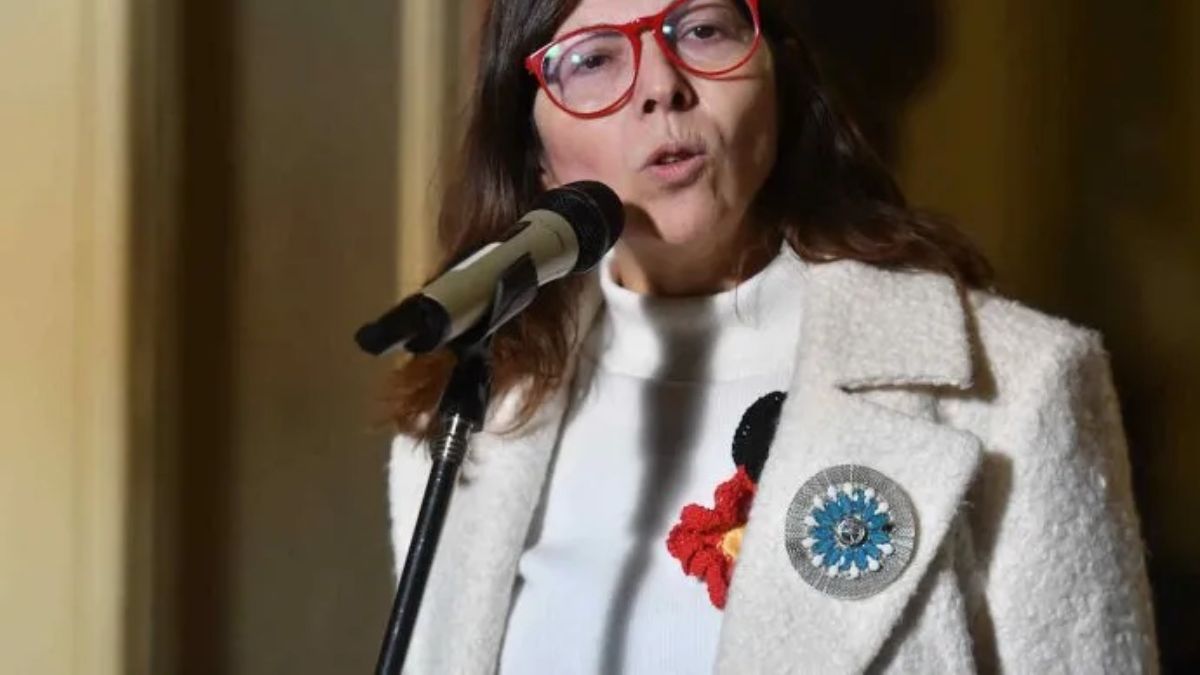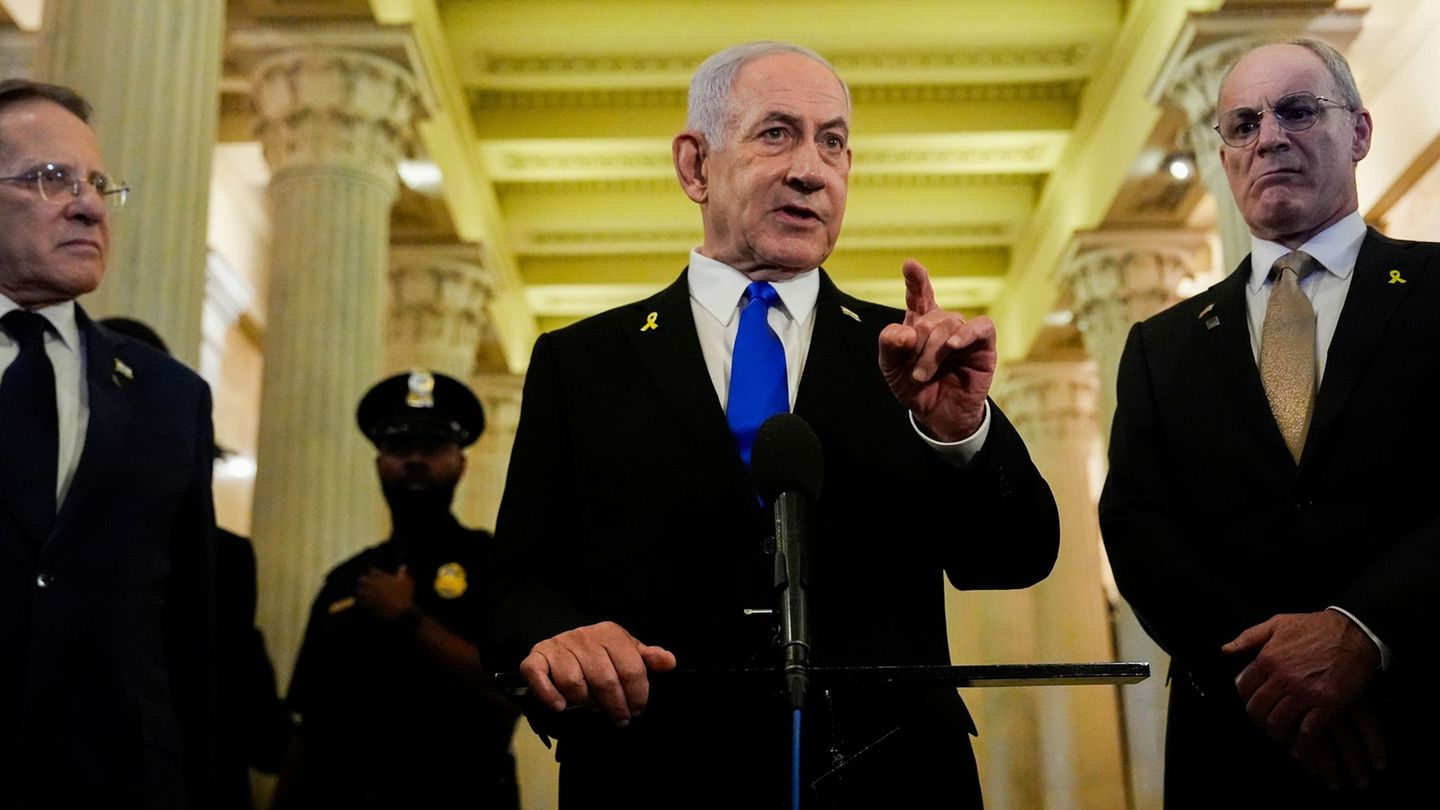The official purpose is to request the support of both entities and ratify the commitment that Argentina has with the program agreed with the IMF. It will also hold meetings with the World Bank and other multilateral organizations with the purpose of speeding up those credits already agreed, according to sources from the Treasury Palace.
The new minister seeks to have a fluid dialogue with the Fund to together analyze the economic situation facing Argentina.
On Tuesday Batakis will meet with businessmen in order to explain what the future will be regarding the economic course while demonstrating that Argentina offers investment opportunities in areas that the world demands today.
Batakis, comment in the Casa Rosada, will try relax the conditions of the agreement signed by Martin Guzmán with the IMF. One possible aspiration is that the fiscal deficit stipulated at 2.5% rises from 2.9%. In fact, in the corridors of the Palacio de Hacienda it was never understood why Martin Guzman I stipulate such a tight goal.
Beyond the macroeconomic problems there is a problem of trust. “There is no economic plan, as good as it may be, that can work if there is no trust in the government, which is the one that must execute it,” noted a leading international analyst based in the United States.
And, the data of the consultants are coincident in terms of the dominance of unfavorable expectations. The latest Sypnosis measurement shows that the government of Alberto Fernandez registers a negative assessment of 76% and almost 70% of those surveyed believe that their economic situation will worsen. In the same sense, the Polyarchy Citizen Optimism Index, which measures social humor, is at the lowest level since the measurement began in 2007.
A problem
In the corridors of the IMF they consider Argentina as a big problem (in a vulgar way they describe it as “a pain in the ass”). They explain that “It is difficult to reach an agreement and it is more complicated to comply with it”.
Within the organization’s structure, it is known that dealing with Argentina ends up being a “punishment” or rather “a ticket to lose a good job.” This is evidenced by the former director of the Western Hemisphere, Alexander Werner either Anoop Singh, displaced after dealing with the Argentine case with the crisis of the government of Macri and De la Rúa, in that order.
Other recently displaced was David Lipton who served as interim managing director of the Fund until he was dragged down by the mega loan that the organization granted to the country during the Together for Change administration.
Janet Yellen
US Treasury Secretary Janet Yellen.
Photo: Getty Images
The important thing about this case is that he now works as an advisor to Janet Yellen, the Secretary of the Treasury of the United States. And this country is the main contributor to the IMF, from where Batakis will face an economist who knows and has suffered from the Argentine situation.
In the immediate future, at the IMF building on Pennsylvania Avenue, the minister will meet with officials who, more than looking at the macro numbers of the economy (which they know well), inquire about the political situation.
It’s politics
Historically, the Fund tended to apply, in all the countries that requested assistance, economic programs using a almost unique recipe for solving problems, I do not address the question of the weight of politics. But this approach has been changing in recent years, given the repeated failures in the implementation of the programs, particularly in Argentina.
In this regard, both the ruling party and the opposition had different views to the IMF recommendations on issues such as the role of the State, the fiscal deficit, inflation, freedom of trade or the movement of capital.
“Having a deficit is not bad”, “a “little bit of inflation is not either” and “the virtuous State must solve everything” are premises that have the support of numerous sectors of society in contrast to the line of the Fund.
However, in his first speech Batakis was emphatic in affirming the need to have fiscal balance and, his first measure was to establish a “single fund” for State expenses. However, there is still no known legal provision in this regard.
Also, He wanted to prohibit officials from traveling abroad for long periods of time and with an excessive entourageI am not able to count on this presidential resolution either.
Everything was left in a harsh and forceful speech before his cabinet peers and with warnings to the governors and mayors with whom he spoke.
The expectation of Minister Batakis, they anticipate in her surroundings, is achieve from the IMF, the necessary “flexibility” so as not to further deepen the economic crisis.
In Washington it is said that, on the other side of the counter, surely The Fund will ask the Argentine representatives for details about what level of deficit they can commit and, above all, how it will be financed.
Specialists in tax issues calculate that close to 85% of public spending is made up of items that “politics does not want to touch.” They range from expenditures on personnel to attention to the social security deficit, transfers tied to salaries (education, universities, social plans, attention to gender violence, aid to private companies) and the financing of the deficit of public companies.
The fact that Batakis achieves a reformulation of the agreement with the Fund does not necessarily ensure that expectations change and therefore the markets calm down.
It should be remembered that the current Extended Facilities program has even parliamentary approval and, however, did not serve to “anchor” the economy.
The only certainty that comes from Washington is that the “The IMF does not want to be responsible for exacerbating the Argentine crisis.”
This, which may not seem like much, is ultimately what made it possible to have foreign currency both in the Macri government (although for other reasons) and in that of Alberto Fernández.
Source: Ambito
David William is a talented author who has made a name for himself in the world of writing. He is a professional author who writes on a wide range of topics, from general interest to opinion news. David is currently working as a writer at 24 hours worlds where he brings his unique perspective and in-depth research to his articles, making them both informative and engaging.




